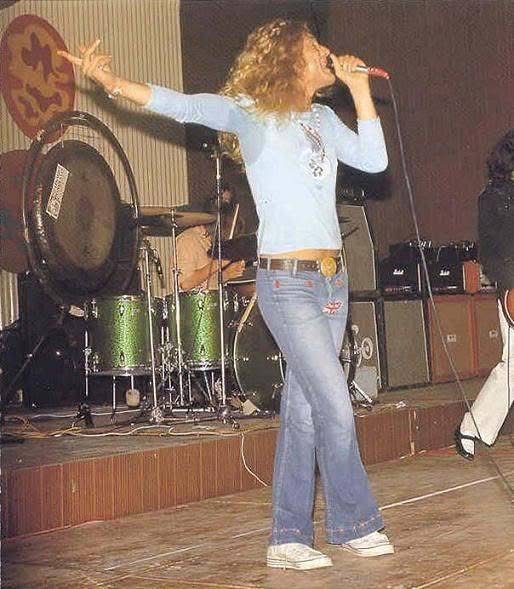Robert Plant’s evolution is one of rock’s most quietly profound transformations. In the 1970s, he was the golden god of Led Zeppelin — all fire, swagger, and soaring wails. On stage, he dominated with a primal energy that seemed untouchable. But time, as it does to all, reshaped him. What’s remarkable is not that he changed, but how he embraced the change. Plant didn’t chase youth or try to preserve a fading echo of his past; he moved forward with curiosity and grace.
Today, he no longer seeks to overpower the music. Instead, he listens — deeply. You hear it in his later work, especially in his collaborations with Alison Krauss. The bombast is gone, replaced by an emotional clarity that feels almost sacred. Their harmonies don’t scream; they whisper, ache, and glow. There’s humility in his phrasing, a reverence for the song itself. His voice, aged and deepened, may no longer reach the stratosphere, but it reaches the soul. It carries the dust of decades, the wisdom of survival, and a love for the craft that’s only grown stronger.
This is not a retreat — it’s an arrival. Plant has become a master of nuance, turning restraint into revelation. His singing feels like a conversation with the past, but spoken in a language he’s only recently mastered. Every rasp and breath seems intentional, each note shaped by a life fully lived. Like weathered wood or a faded photograph, his voice doesn’t show wear — it shows history.
In a world where aging artists often cling to old glories, Plant stands apart. He’s not reliving his legend; he’s rewriting it. And in doing so, he proves that growth — not nostalgia — is the true mark of an icon.










